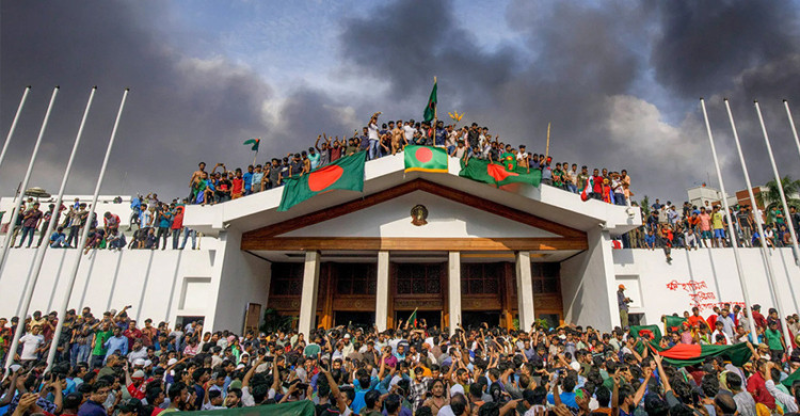- Eminent Lalon singer Farida Parveen passes away |
- Dr Yunus mourns Farida Parveen's death |
- From DUCSU to JUCSU, Shibir Extends Its Winning Streak |
- Dhaka's air quality in 'moderate' range on Saturday morning |
- Deadly Floods Displace Over 100,000 in South Sudan |
July Charter Nears Final Approval After Revisions

The “July National Charter 2025” is expected to be finalised this month without major amendments or objections, after a revised draft was circulated that sets out a legal framework and an implementation timeline.
While the draft does not set a strict deadline for reforms, it requires the government and relevant authorities to fully implement all provisions before the next general election.
The charter will receive special legal status. According to the revised draft, it cannot be challenged in any court, and if any clause conflicts with the constitution or other laws, the provisions of the July Charter will prevail.
On Saturday, the National Consensus Commission (NCC) sent the 27-page draft to political parties for final feedback.
The earlier draft was rejected by several parties, including Bangladesh Jamaat-e-Islami, the National Citizen Party (NCP), and Islami Andolan Bangladesh (IAB), who demanded legal recognition of the charter before the next parliamentary elections.
The NCC is expected to meet with political parties after 20 August to finalise the draft. Professor Dr Ali Riaz, vice-chairman of the commission, said the revised draft had been sent to all parties for comments on language and wording by 20 August.
Political analysts believe the charter will be finalised and signed within the month, though some parties may suggest observations or minor amendments.
BNP Standing Committee member Salahuddin Ahmed said his party would submit feedback by Wednesday, noting inconsistencies in certain sections.
The Sheikh Hasina-led Awami League government was toppled on 5 August 2024 following a student-led mass movement. On 8 August, an interim government led by Professor Muhammad Yunus took office and formed six commissions, later consolidated into the NCC, to draft reform proposals.
The revised draft addresses 84 issues agreed upon by political parties during discussions between March and July, while also noting points of dissent.
The charter proposes reforms across political, judicial, electoral, and administrative systems, shaped by the aftermath of the 2024 mass uprising. It references historical events including the Peelkhana massacre, the Shapla Chattar massacre, and the 2018 quota reform movement, framing the document as the product of decades of struggle for democracy and justice.
It pledges that the sacrifices and aspirations of the 2024 uprising will be honoured through full implementation of its provisions, which will be recognised in both constitutional and state frameworks.

